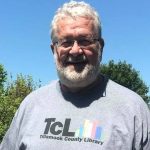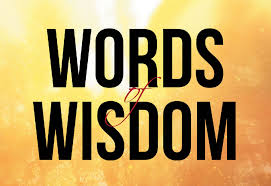
By Neal Lemery
Almost seventy years ago, I remember watching soldiers on our grainy black and white television, escorting kids my age into a school. I asked my mom why the soldiers were doing that, and her answer left me confused, unsettled.
“It’s because of their race, the color of their skin, and that the school and the white community doesn’t want them to go to that school,” she said. “But it’s the law. They have a right to go to that school, and the soldiers are enforcing the law.”
My mom’s answer upset me, scaring me that soldiers in our country would have to make sure kids like me could go to school, and that would happen with soldiers armed with rifles and bayonets walking with school kids the same age as me. I was a naïve kid and it was the first time I remember experiencing racism.
I’m still scared and unsettled by that scenario, those responses, and all the racist conduct and talk in our country. It’s all around me. Still.
And the news. There are still the videos of racism and violence, and people living as if the color of someone’s skin really mattered. Martin Luther King, Jr.’s wisdom that the color of one’s skin doesn’t matter, but the content of their character does, still reverberates in me, still makes a lot of sense to me. Why don’t we, as a country, grasp that seemingly elemental observation?
The other day, I talked with a man was telling me about his accident, how he is still hurting, and that the guy that T-boned him was careless, and didn’t have insurance. I’d been in a crash like that a few years ago and I expressed my sympathy and wished him a speedy recovery. I’d struggled with the pain, and the good results I had in working on my own forgiveness and compassion.
“He was ***, you know,” he added. “One of those ***** ***, who don’t belong here,” he added. He ranted and raved some more, about immigrants and “those people” being lazy and “good for nothing.” It seemed his view of the world was neatly divided into “them” and “us”.
His face reddened and he kept flying off the handle for several minutes, leaving me still mystified about the connection between someone’s ethnicity and speculative immigration status, and a traffic crash with whiplash and a concussion. I’m doubting if the guy had actually done some fact checking and checked on someone’s citizenship status. And, I recalled another conversation I’d had with him several years ago about how proud he was of his grandparents’ emigration to this country, and how they had worked hard and succeeded, living the American dream. He would go on and on about how proud of them he was, and how hard they worked to be part of America. He didn’t see the connection, the commonality of his family and the man he was angry with, or deal with the idea that most of us are either immigrants or that our ancestors were immigrants.
I’m still wondering if I shouldn’t have been a bit more vocal, and a lot more assertive about this blatant expression of racism and bigotry. It’s not the 1950s in Arkansas now, nor the Oregon of 1859, but we still seem to stay in our racist ways, a common expression of bias, prejudice, and downright ugliness. And, I’m hearing high elected officials and candidates for national office being forthright and outspoken on their racism and bias, seemingly deaf from the outrage of much of the population.
Maybe I need to be more intolerant, and more biased against bigotry and hate.
My state, Oregon, has a long and sordid history of racism and bigotry, beginning our statehood by prohibiting Blacks and Chinese people from even living here. My town had a “sundown” law on the books until the 1980s. I still hear the “N word” in public conversations.
And, until last week, a nearby creek’s legal name contained a racial slur. I came home to see a note from another friend, a celebratory announcement of his ability to prevail with the state geographic names board. He’s a historian, and his research discovered that a creek still bore a racist reference to an early homesteader. Well, its 2024 and my friend thought some reform and rehabilitation was in order, so he petitioned the board for a name change, which was promptly granted. The old name had been on maps since the 1870s. Didn’t anyone notice? Or worse, feel uncomfortable enough to seek a name change?
A few weeks ago, a clerk bragged to me that she didn’t need to learn Spanish for her job. “They can just learn English,” she said. Then I watched her struggle to handle a simple transaction for the next customer, whose native language was Spanish. I ended up helping them, with my limited skills, but I was able to smile and make an attempt with both of them, receiving smiles and appreciative nods from both the stubborn clerk and the customer. It was a good reminder to me that I need to work on my own language skills, that I need to practice what I preach, and to keep on learning and growing in our culture, and a reminder that while others are learning English, that I and other English speakers could work on our Spanish. The issue seems to be one of developing a good character.
I’m not sure the clerk got the memo, but the exchange was a good example of the benefits of bilingual skills.
Racism seems to be still infested in our community, and our nation. I find myself often confronted with my own biases and prejudices, and need to realize that I’m a product of our culture, a lot of subtle bigotry, and that it’s never too late for some introspection and to be on the smart side of the 21st century. I need to smarten up.


